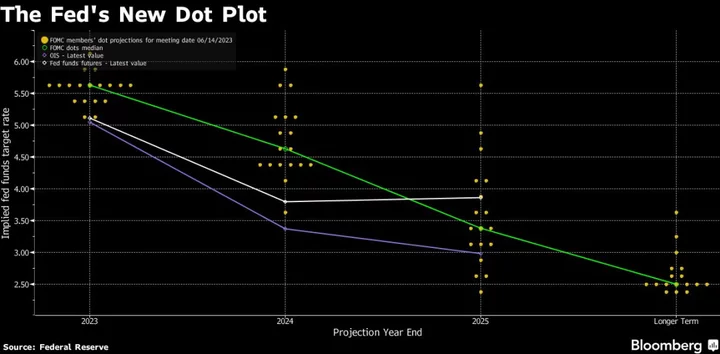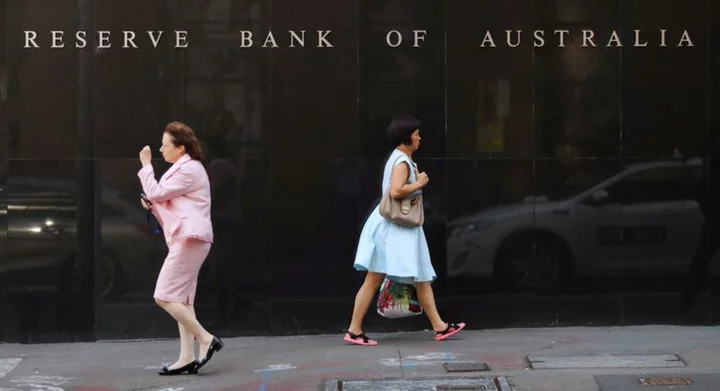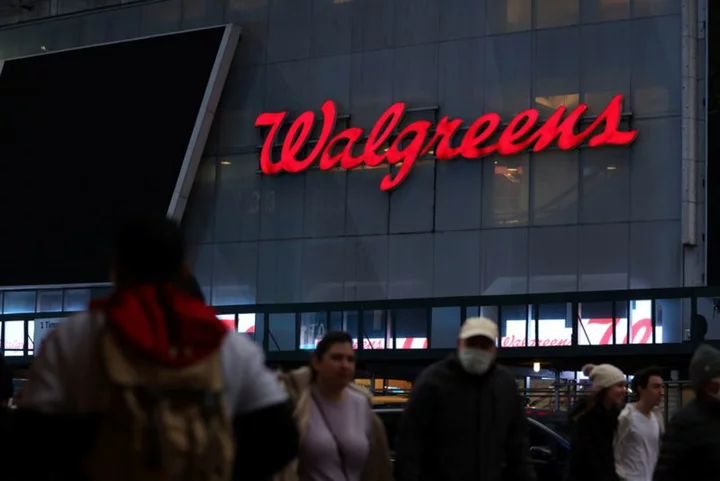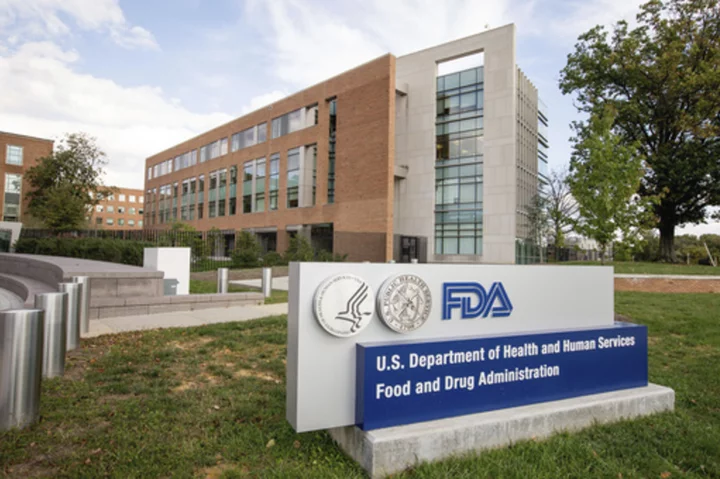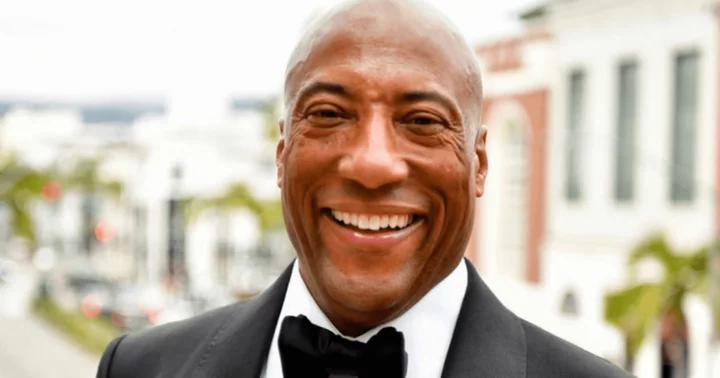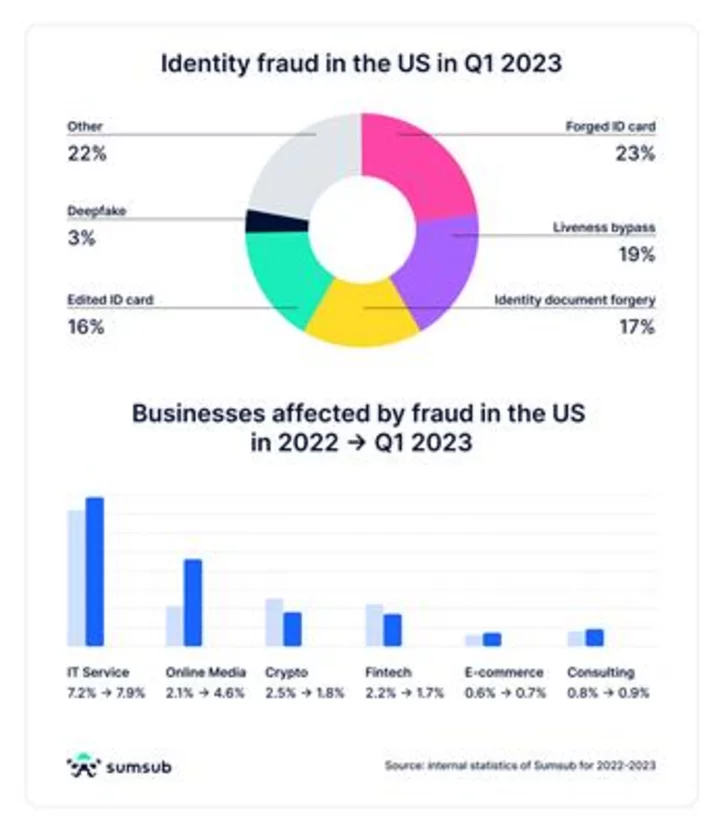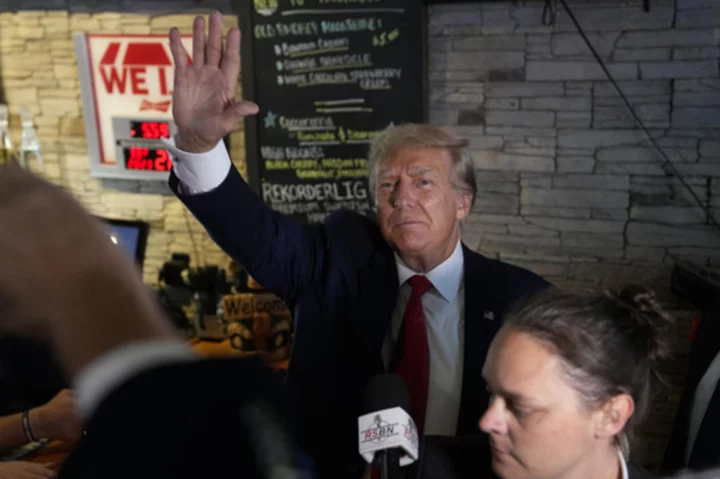Jerome Powell would like to make one thing clear: the Federal Reserve is not done hiking interest rates.
Seeking to clear up confusion about policy and play down the significance of last week’s break in its 15-month credit tightening campaign, the Fed chair suggested officials were on course for two more rate increases this year.
In presenting the Fed’s semiannual economic update to Congress on Wednesday, Powell hammered home the message that the central bank was laser focused on reducing elevated inflation back to target despite Democrat lawmakers’ concerns that tighter credit will push up unemployment.
“The process of getting inflation down to 2% has a long way to go,” he told the House Financial Services Committee during a three-hour hearing.
He will appear before the Senate Banking Committee later on Thursday.
US stock prices slid as investors took the chair’s message of tighter credit conditions on board, with technology company shares in particular shedding some of their recent steep gains.
Traders in the money markets are betting that the Fed will raise rates one more time in July, then call it quits to a tightening cycle that has already seen rates climb by five percentage points.
Some Fed watchers were puzzled last week after policymakers held rates steady while at the same time forecasting that additional hikes would be needed to bring inflation to heel.
“It was a complicated messaging issue last week,” said Veronica Clark, an economist at Citigroup Inc.
That led to speculation that the break in the tightening campaign was an uneasy compromise between monetary doves who fear the Fed may raise rates too far and trigger a recession, and hawks who worry it won’t tighten credit enough to curb inflation that is running more than twice the central bank’s target.
That perception has been reinforced by comments from a variety of policymakers in recent days.
Read More: Fed’s Bostic Sees No Need for More Rate Hikes for Rest of 2023
After Fed Governor Christopher Waller and Richmond Fed President Thomas Barkin spoke of the likelihood of further rate increases last week, Atlanta Fed President Raphael Bostic on Wednesday said the “bar is higher” for more hikes.
Powell, for his part, focused on the central bank’s so-called dot plot of forecasts, updated last week, which shows that half of the Federal Open Market Committee expects rates to rise another half point by the end of this year.
“That’s a pretty good guess of what will happen if the economy performs about as expected,” Powell said.
He asserted there was no inconsistency between officials holding rates steady last week while forecasting further increases later in the year.
“Given how far we’ve come, it may make sense to move rates higher but to do so at a more moderate pace,” he said.
Much of Wednesday’s hearing focused on banking regulation. This was the first time that Powell appeared on Capitol Hill since several regional banks failed in March.
Republican lawmakers voiced concern that Fed plans to tighten regulation in the wake of those failures would hurt the economy and needlessly hamstring banks, particularly smaller ones.
Powell suggested that community banks would be spared any new rules and stressed that any increases in bank capital the Fed does go ahead with won’t take effect for a long while. A proposal from the Fed is expected this summer.
Sound and Resilient
Powell repeatedly stressed that the banking system is “sound and resilient.”
He did though say the banking supervisors were carefully watching developments in the commercial real estate market, where prices have recently begun falling, especially for office buildings that remain partly vacant in the wake of the pandemic. The Fed’s focus is on some smaller banks who have lent heavily to the sector, he said.
The Fed chair said he saw no sign that the turmoil in the financial industry earlier this year was leading to severe pullback in bank lending — a so-called credit crunch – though he added it may be too soon for that to show up.
Several Democratic lawmakers at the hearing praised Powell and the Fed for pausing its rate hiking campaign last week and voiced concern that further tightening would unduly push up unemployment.
Powell though refused to label last week’s decision a pause and instead played up the strength of the jobs market. He said the Fed was “over-achieving” on its goal of maximum employment, with demand for workers far outstripping supply.
With the jobs market so strong, the Fed can afford to concentrate its efforts on bringing down inflation that’s way too high, he said. While some relief on the price front is set to come from a big drop in rents later this year and into 2024, reducing inflation is likely to require “some softening of labor market conditions,” according to Powell.
“The chair was trying to signal a good chance that the funds rate will end the year 50 basis points higher than it is today without boxing himself in,” said Jonathan Wright, an economics professor at Johns Hopkins University.
With money market traders betting on just one more quarter-point increase, “there is still a gap between market expectations and committee communications,” the former Fed official added. “Perhaps this comes about because of prior cases of the FOMC signaling more tightening than they ultimately delivered but that was in a very different inflationary environment.”
--With assistance from Steve Matthews, Katanga Johnson, Elizabeth Kim and Catarina Saraiva.

